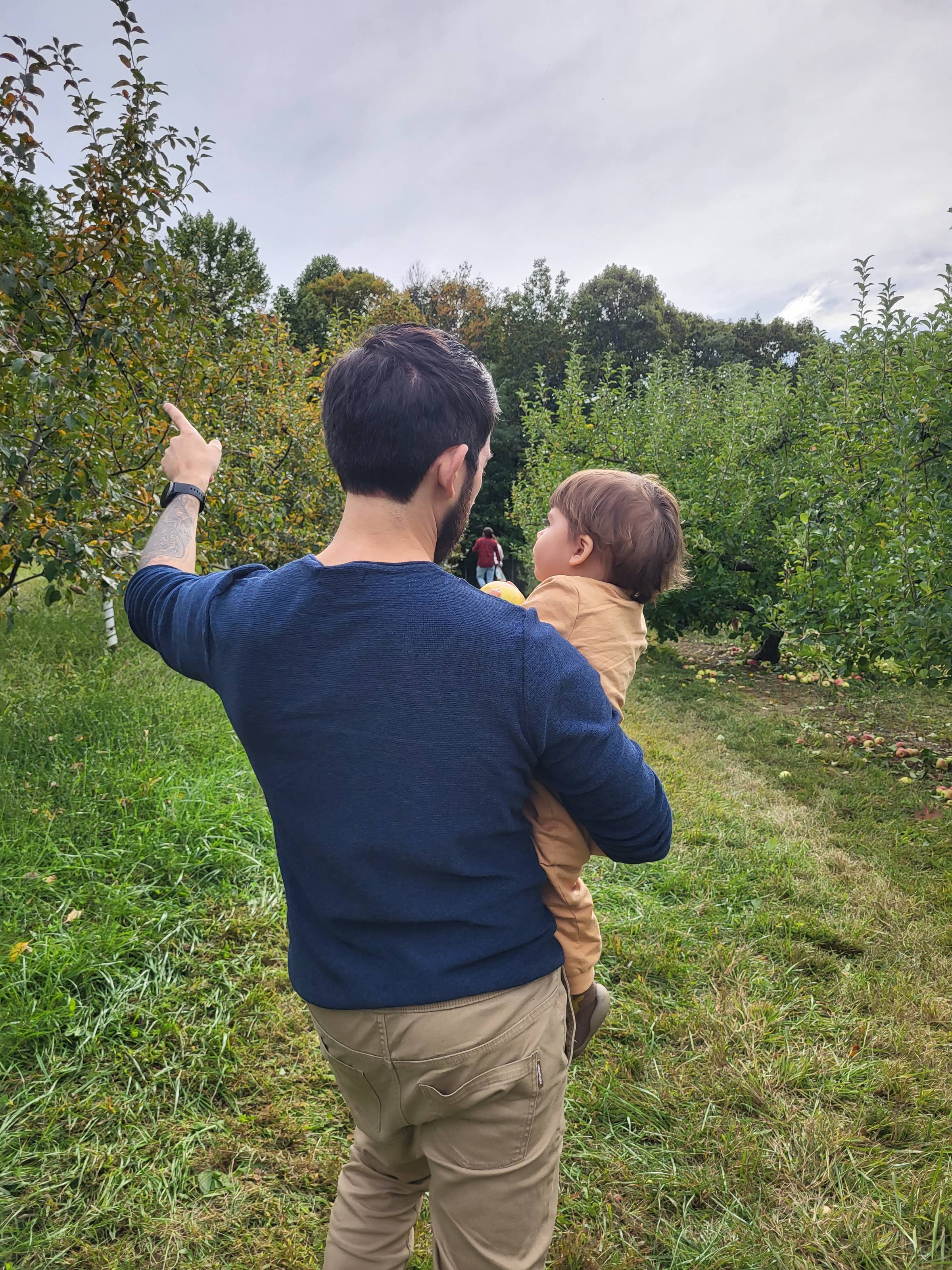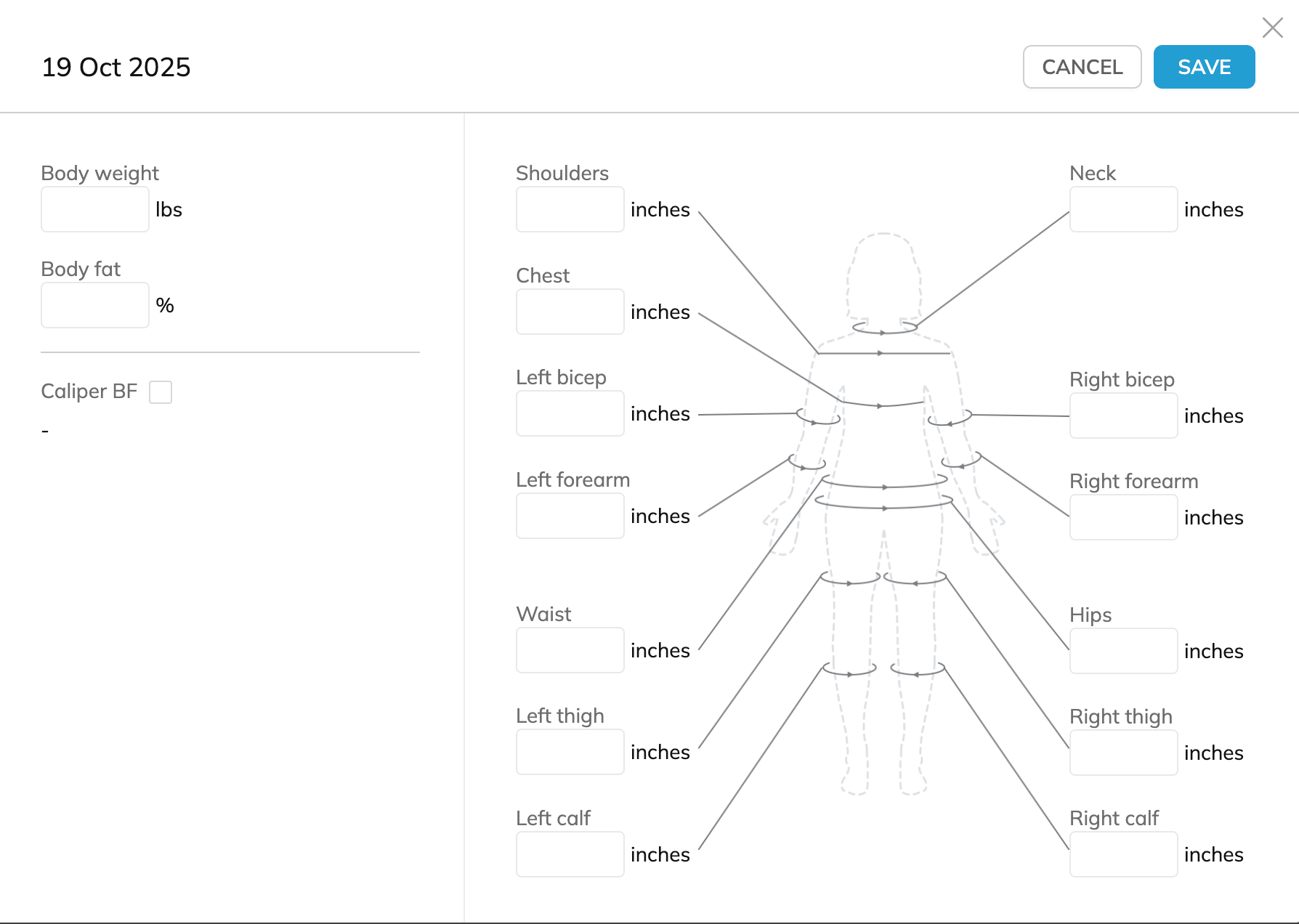Edition #169: Stop eating like this, track your body comp, and my new 2-2-2 method
Oct 17, 2025
strategies to get lean, strong, and create optimal health.
You'll receive one personal health insight, three actionable tips, and one concrete action step. Let's dive in.
What's in store for today:
- Stop eating like 95% of Americans who struggle to lose weight and digest their food.
- Track your body composition using this simple system each week.
- My new health standard is radically changing my life (and how you can adopt it in yours).
Food is medicine.
Most of my life, I didn't see food like this.
Like most people, I grew up seeing food as a pleasurable activity.
However, I learned that some food 'rules' weren't healthy.
For example, I would hide in our garage and eat 1/2 a tub of peanut butter or cake frosting because I loved the sugar rush.
I would hide my sweets and enjoy them during the cold months. I had my Halloween stash carefully tucked away.
Then, there was the sadistic relationship between food being used as a tool to punish or reward us.
Unfortunately, this is a common trend in most families (especially in the States).
Using food as a reward/punishment tool only reinforces the belief that food is for pleasure or pain.
It disconnects us from using food for its one and true purpose: for health and energy.
Health = is a state of complete physical, mental, and social well-being.
It's also interesting that 'heal' is within the word 'health'.
Energy = the power and ability to be physically and mentally active.
Food fuels our well-being. It helps us stay active, both physically and mentally.
Food is medicine when it's used correctly.
But again, this isn't seen in modern society.
Food is used as a drug that works against us.
I've used this food drug for many years, too.
It's addictive.
It’s even tougher when you lack the right tools to manage stress and negative feelings. I’ve faced this many times. Instead of dealing with my emotions, I often turn to my favorite foods.
So we were at an apple farm this past weekend.

Enjoying the fresh apples. :)
Picking apples straight off the tree and choosing our medicine.
The way nature intended us to eat.
I grew up in a home with a large garden.
I spent a large bulk of my youth helping plant, weed, and nurture that garden.
It's interesting how resentful things from our youth can become fascinating later on.
Again, the reward/punishment systems don't serve any humans.
Carol Dweck coined the term 'growth mindset.' Her research explains how fixed mindsets are formed.
Curiosity and an open mind are the prerequisites for a growth mindset.
So we picked some apples. I climbed a few trees. Ate our apples.
Went to see some farm animals. Got some more apples. Then, ate more apples.
Food can be a healing tool.
It's up to us how we use it.
Lesson: When you change how you see things, the things that you see change.
Here's Your 1-3-1 Friday:
1.) Stop eating like this
Most people eat their food fast. Most people struggle to drop weight.
So instead of following the masses, use this eating system instead:
Eat slowly and chew your food each bite.
Mind-blowing, right? I mean, c'mon, I've heard this a million times, Gabriel.
Hear me out. You'll find this next part interesting.
In a study on eating slowly, 21 participants, about 23 years old and with healthy body mass, were randomly assigned to eat a 600 kcal meal. They ate at either a 'normal' speed (6 minutes) or a 'slow' speed (24 minutes).
What happened next was revealing.
They were rated immediately afterwards for meal enjoyment and satisfaction.
Here's the other findings this study discovered:
- Two hours after eating, the slower eating group felt fuller and remembered portion sizes better.
- Ghrelin suppression (your hunger hormone) was higher in the slower-eating group.
- And the biggest one: 3 hours post-meal, the slower eating group ate 25% less energy from snacks.
This study has interesting takeaways. It isn't perfect, but it offers some unique insights.
The big one is that eating more slowly can help retrain the way you listen to your body.
Most of us move at a fast pace throughout our day (myself included).

I'd like to think I ate this slowly...
We often find it hard to focus on our food and families. We get caught up in the 10,000 tasks we face each day (myself included).
It often leads to overwhelm and frustration.
It's not effective to tell a client to slow down when they have just 5 minutes to eat or when they aren't eating at all.
But the real problem isn't that you're eating fast. It's that you haven't created the space or time to sit down quietly with your food and nurture your body.
It's an uncomfortable truth that each of us has to face ourselves.
If you're eating the same way you did when you were a kid (and it didn't serve you then), then why would it serve you now?
Part of being a mature adult is slowing down and reflecting.
The path towards internal growth emerges when we slow down and observe ourselves.
So the action step here is simple: eat 10-20% slower than your current speed.
You don't need to go 0 - 100.
But a bit slower can help. Try it out this weekend.
2.) Track your body comp
Tracking your progress is important.
It’s also motivating.
However, most tracking systems aren't effective.
They don’t capture the full picture of physical and body-composition transformation.
Which is why we teach a 3-tier system inside of VFR and our coaching programs.
The 1-1-1 system ensures we get at least 6 data points from our students without relying on faulty data or making inaccurate decisions.
How it works:
1 - weekly track your body weight (first thing in the morning, same time every week, before you eat and drink)
1 - weekly track your body measurements (first thing in the morning, same time every week, before you eat and drink)
*Track hips, waist, thighs, and chest.
1 - weekly track your photos (front, side, back; in underwear or bikini, good lighting, clear background, and use the same place each week)
Expert Tip: Progress photos are a requirement EVERY week for our students.
Why?
Without clear and visible data on your progress, it’s hard to notice changes in body composition.
How we track data with VFR clients :)
Schedule your photos, body weight, and measurements each week. Set this as a recurring event in your calendar.
This way, you can challenge yourself to track your health and fitness progress.
Your mini challenge here is to do your 1st round of 111 measurements by next week.
That's my challenge for you.
What you track can be improved. What you don't, can't.
Remember: behaviors leverage results.
Focus on your actions.
And results will follow.
3.) My new 2-2-2 method
I've been working on creating a new evening fitness system.
Inspired by Bryan Johnson, I’m merging my evening habits into a single routine. This helps them work for me, not against me.
Here's my current system to create lifelong health:
1.) 2 - two hours or more before bed stop all eating (liquid and food calories)
2.) 2 - two hours or more before bed, end all electronics and turn off wifi router
*Also, put on blue light glasses 2 hours before bed for extra protection
3.) 2 - two hours or more before bed, end all work activities and projects for day
It hasn't been a perfect ride.
But success starts the night before.
The past 18 months have been one heck of a ride as a dad.
It's been joyful and overwhelming, all wrapped into one messy package.
But one thing I've noticed is that how I end my days is typically how I'll start my days.
I’ve had a hard time going to bed on time. I feel like I deserve to enjoy my evenings. I spend them watching YouTube videos, courses, and random soccer clips.
It hasn't served my health.
It's a reminder that until we face our Puer Aeternus, we'll keep repeating the same childlike mistakes.
So, slowing down isn't just for eating. It's also for ending your day in observation and awareness.
Like last night, when my wife and I had our date night.
Zero electronics. Just tea. A light meal. Sitting holding hands in our dining room.
A simple, quiet night.
Every time we have a simple night, sleep comes swiftly.
Those are the nights I sleep fast, well, and wake up early.
I'll continue refining my 2-2-2 method and report any findings as I run my experiment.
Try it out yourself and see how it goes.
I'd love to hear your thoughts, too. :)
1 Action Step
Slow down your eating speed by 10-20%. See what happens after 3 weeks.
One Quote To Finish Your Week Strong
"Habit 1: Be Proactive Habit 2: Begin with the End in Mind Habit 3: Put First Things First Habit 4: Think Win/Win Habit 5: Seek First to Understand, Then to Be Understood Habit 6: Synergize Habit 7: Sharpen the Saw” ― Stephen Covey, The 7 Habits of Highly Effective People
Been working on a massive free guide (8,000 words) on every strategy and tactic to drop weight as a vegan.
Probably will be ready by Monday.
Anyways, hitting publish on this now, then going to park with Anthony.
Fall days are the best.
As promised, get leaner on plants in under 5 minutes.
Till next week,
![]()
Whenever you're ready, there's 3 ways I can help you:
- Connect with me on Facebook and Instagram and let's be friends.
- Join our free Facebook Group. Get free trainings on how to get lean and strong with plants.
- Want to drop body fat and build lean muscle in a fraction of the time with ease? Apply for Accelerator 1:1 coaching.
References
- Hawton, K., Ferriday, D., Rogers, P., Toner, P., Brooks, J., Holly, J., Biernacka, K., Hamilton-Shield, J., & Hinton, E. (2018). Slow Down: Behavioural and Physiological Effects of Reducing Eating Rate. Nutrients, 11(1), 50. https://doi.org/10.3390/nu11010050

